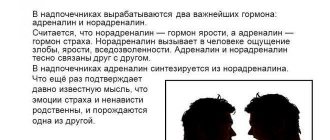What causes pain during childbirth?
We should be afraid of pain that indicates “breakdowns” in any body system or ongoing pathological processes. Human birth is a natural physiological action, just like breathing or sleeping. It is provided by nature, and, therefore, should not destroy the woman’s body. What then causes pain?
Of course, it would be dishonest or naive to say that it is possible to experience no discomfort or pain at all during childbirth. This is wrong. But you should know that any sensations a woman has during this period have completely understandable reasons. And if you understand them, then pain can be regulated, subdued and minimized.
During the birth of a baby, the uterus actively contracts for a long time. But there are very few pain receptors in its muscle fibers, so such contractions cannot provoke severe pain. Their main source is the muscles surrounding the uterus. And if a woman cannot control the strength of uterine contractions, then learning to relax these muscles and, therefore, reduce pain is quite possible.
The longest and most painful period of childbirth is contractions. At this time, increasing contractions of the uterus lead to the opening of its cervix, which makes it possible for the baby to pass through the birth canal. In this case, the baby’s head puts pressure on the uterus, irritates the nerve endings and strains the ligaments that support it. This is what causes pain.
At the beginning of the process, when contractions are infrequent, the pain is mild. They are dull, aching in nature and resemble menstrual ones. As the intensity of contractions increases, the pain intensifies. But if childbirth is not pathological, then a woman can control her feelings during this period.
The pain in the second period is somewhat different. It is associated with pressure from the fetal head on the tailbone, vagina and perineum. Read more about the process of natural childbirth →
But physiological processes can explain only a third of the pain that occurs during childbirth. How then can we explain the unbearable pain that many women who have given birth to a child talk about?
If we talk about normal childbirth, when there are no pathologies that are dangerous to the life and health of the mother and child, pain is caused by ordinary fear. The woman is frightened by the unknown, the process itself, she worries about herself and the baby. Conversations from friends and relatives about women's difficult lot also do not add optimism.
At this moment, adrenaline is released into the mother's blood, which causes spasm of muscles and blood vessels, compression of nerve endings, and deterioration of uterine nutrition. Against the background of fear, the pain threshold decreases. Even the slightest discomfort can be perceived by a woman as unbearable torment.
Help yourself
There are many ways, both physical and psychological, that help you adapt to the pain of childbirth.
Some people feel better just from the presence of a loved one nearby: mother, husband, girlfriend. In addition, the mother in labor will benefit from:
- Listen to the doctor in everything. If you strictly follow his commands, it will be easier to survive the pain.
- Try not to scream. At least not too much. This will take a lot of energy, but will be of little use. In addition, screaming causes vasospasm - and the baby may not receive enough oxygen at this time.
- Rest as much as possible between contractions. Maybe even sleep. You will still need strength, and very soon.
- During contractions, change your position, taking the one your body tells you. You can squat, kneel with your legs spread wide, lean on the bed, hang on the door frame.
- Master proper breathing and the basics of self-massage (this is taught in courses, but you can learn all this yourself on the Internet). The main thing is not to forget to apply knowledge in practice at the most crucial moments.
How to deal with fear?
Fear is a natural phenomenon inherent in every healthy person. The expectant mother's fears are mostly caused by the unknown and expected pain. To cope with it, a woman needs to study the issue in advance and prepare for this process. Then childbirth without pain and fear will become a reality. Read more about pregnancy phobias →
The following will help you overcome your fear:
- Attending special classes before childbirth. Information about childbirth, anesthesia, and breathing techniques received from an experienced specialist will help a woman calm down.
- Communication with accomplished mothers. It is useful to hear the opinions of those whose childbirth was normal. Women who have successfully given birth to a baby will tell you that the pain is tolerable and that it can be reduced in various ways, including medications.
- A pregnant woman does not need to listen to stories from overly impressionable people who love to retell in detail the horrors of other people’s births.
- Doing what you love and moderate physical activity will help calm the expectant mother’s nervous system and set herself in a positive mood. Read more about exercises for pregnant women →
- You should realize that childbirth is an unpleasant, painful, difficult, but normal physiological process that has a successful completion. This is not an easy job, but the reward for everything you have experienced is the most precious.
- The expectant mother must understand that labor pain is physiological, which is normally tolerated by the body. To overcome the fear of pain, you can study modern methods of anesthesia during childbirth - this includes massage, breathing, special positions during contractions, and the use of medications if necessary. Read more about correct behavior during childbirth →
How to reduce pain during childbirth?
This can be achieved in different ways.
Physical exercise
Childbirth is a process that requires physical endurance. Special physical exercises performed during pregnancy will help prepare for this and reduce pain. During such exercises, the muscles of the back, abdomen, and pelvis are strengthened, and the body's endurance increases. Women in good physical shape give birth easier than those who avoided physical exercise during pregnancy.
If it is not possible to resort to the services of a professional instructor who will select an individual training program, then you can perform the following exercises yourself with the permission of your attending physician:
- squats (to strengthen the pelvic and abdominal muscles);
- bending in a sitting position, legs extended (increasing the elasticity of the ligaments);
- moving your arms with a towel behind your head for a few seconds, your shoulders should be higher than your elbows (strengthening your back muscles);
- performing Kegel exercises (strengthening the pelvic floor);
- maximum leg extension in a lying position, holding them for up to 30 seconds (strengthening the thigh muscles).
It is recommended to repeat the exercises up to 10 times on a gymnastic mat. Simultaneously with physical gymnastics, it is necessary to train breathing. Knowing how to breathe correctly will help a woman control the pain of labor.
Perineal massage
Perineal massage, performed starting in the middle of the second trimester of pregnancy, will minimize the likelihood of perineal rupture and pain associated with this complication. This is especially true for those who have experienced ruptures from previous births, which is associated with reduced elasticity of scar tissue. The frequency of massage is once a week at the beginning of pregnancy, after the 30th week - twice a week, and in the last weeks - daily.
If it is difficult to carry out the procedure on your own, you can use the help of your husband. To do this, you should purchase special oil for perineal massage or almond, sesame, olive, or sunflower.
Psychological attitude
A woman’s psychological mood largely determines the normal and painless course of childbirth. An easy, pain-free birth is an integral part of the positive attitude of the expectant mother. There is no need to look for and collect negative information or experiences of other mothers; the feelings of each woman in labor are individual.
It is necessary to understand that the main task of a mother is to help her long-awaited baby come into the world. And for this you need to do everything possible. A woman must remember that our thoughts can materialize, so we only need to think about good things!
Psychologists recommend that the expectant mother tame her fear and make it an ally. What does it mean? You need to deal with your fears. If a woman is afraid to be alone, she should consider the possibility of partner birth. If your main fear is pain, then you need to learn to breathe and relax.
To ensure childbirth is pain-free, you can read a good book about this process. Information from the literature will help you cope with the fear of the unknown. As such a source of information, we can recommend the world-famous book “Childbirth without pain and fear” (second title “Childbirth without violence”), authored by obstetrician-gynecologist Frederic Leboyer.
If a woman is afraid of insufficient qualifications of medical personnel, then it is worth agreeing with a doctor who inspires trust in advance.
Breathing technique
Special breathing exercises can be of great help in pain relief during labor. It is best to master it by attending courses for pregnant women, but you can master it on your own.
Breathing during childbirth should be different: light, deep, shallow, and calm. It all depends on the stage of the process. But you need to learn this in advance in order to bring the technique of proper breathing to automaticity. This will help control pain and avoid panic during labor.
Medication technique
In most cases, pain experienced during normal labor does not require medical anesthesia. But sometimes pain relief with medications may be required. The need for such intervention is determined by the doctor, and the woman in labor must be informed about this.
It is possible to discuss the methods of anesthesia accepted in a particular medical institution even before the birth at the stage of concluding a contract. But you need to remember that any medicine can negatively affect both the baby’s health and the mother’s well-being. Therefore, anesthesia should be used only on the recommendation of an obstetrician.
In order for childbirth to take place without pain and fear, you need physical (physical education and breathing exercises), psychological (the right positive attitude) and informational preparation (a book about childbirth, films, special courses).
The expectant mother must remember that the birth of a baby is not horror, pain and fear. First of all, it is hard work aimed at ensuring that the child is born healthy. You shouldn’t be afraid or panic; you need to do everything to subdue your fear.
Author: Veronika Ivanova, especially for Mama66.ru
What to do to not be afraid of childbirth?
By following some simple recommendations, you can get rid of the fear of painful contractions and other fears associated with the birth of your baby.
Walks in the open air
Be outside more often. This is another opportunity to be closer to nature - breathe deeply, listen to the rustling of leaves on the trees, admire the flower beds. Pay more attention to beauty . Your lungs will be saturated with oxygen, and your internal state will become calm and peaceful. This way the fears will pass. If possible, go for walks with your husband.
Minimum conversations
Don’t try to listen to all your friends, acquaintances or relatives who gave birth. If for some of them childbirth caused horror and unpleasant pain, this does not mean that it will also happen to you. Moreover, women like to embellish events, and some strive to look like even greater victims of circumstances in order to be pitied.
Don't inspire yourself with anything bad in advance. Feed yourself only positive emotions .











